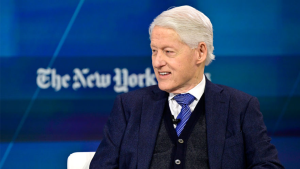Defense Secretary Condemns Senator’s Comments on Military Orders
In a pointed rebuke, the Defense Secretary strongly criticized a senator’s controversial comments that encouraged military personnel to disregard certain orders. The Secretary characterized these remarks as “despicable, reckless, and false,” highlighting the serious implications such statements have for military discipline and the chain of command. This sharp condemnation underscores the fundamental principle that the U.S. military operates within a clear legal framework where troops are trained to follow lawful orders while having mechanisms to address potentially illegal directives through proper channels.
The Senator’s comments sparked immediate concern among military leadership, who viewed them as undermining the carefully balanced system that maintains both military effectiveness and adherence to law. Military experts have noted that service members receive extensive training on their legal obligations, including when they may refuse an order that would violate military regulations, U.S. law, or international conventions. The Defense Secretary’s forceful response reflects the Pentagon’s position that public figures, especially elected officials, have a responsibility to understand the nuances of military duty before making statements that could confuse troops about their obligations.
The controversy highlights the delicate relationship between civilian leadership and military command in America’s democratic system. While civilian control of the military remains a cornerstone principle, military personnel operate under the Uniform Code of Military Justice, which provides clear guidelines about lawful orders. The Defense Secretary’s comments serve as a reminder that while the military answers to civilian authority, that relationship functions best when civilian leaders respect the professional ethics and legal frameworks that guide military service.
This exchange occurs against a backdrop of increasing political polarization that has occasionally spilled into military affairs. Military leaders have consistently emphasized that the armed forces must remain apolitical institutions focused on national defense rather than partisan objectives. The Defense Secretary’s strong language suggests concern that the senator’s remarks could potentially politicize military service or create confusion within the ranks about the proper response to orders—confusion that could have serious consequences in operational settings where clear command authority is essential.
The incident has prompted broader discussion about the responsibilities of public officials when commenting on military matters. Many former military leaders have supported the Defense Secretary’s position, noting that casual or politically motivated comments about military disobedience could undermine the good order and discipline that makes the U.S. armed forces effective. They emphasize that while the military has robust systems to prevent illegal actions, these systems work through established channels rather than through individual discretion as the senator’s comments might suggest.
As the situation continues to develop, military families and service members have expressed appreciation for the Defense Secretary’s clear stance on the matter. For those who serve, understanding the boundaries of their obligations is not an academic exercise but a practical necessity that directly affects their daily decisions and actions. The Defense Secretary’s forthright defense of military professionalism reinforces the message that America’s armed forces operate according to law and established ethical principles, not political whims. This foundation of lawful conduct remains essential to maintaining both the effectiveness of the military and the public’s trust in this critical institution.










